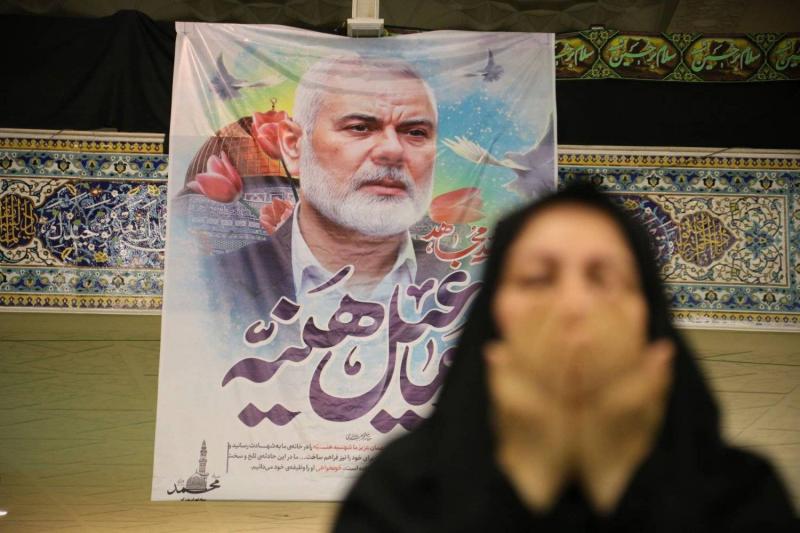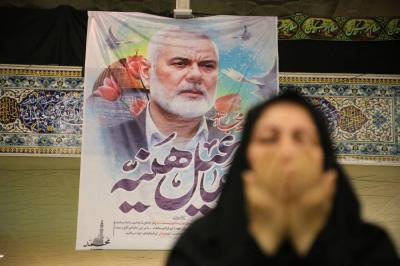Following the assassination of the head of Hamas' political bureau, Ismail Haniya, by Israel, the Iranian leader announced that there must be a response to Israel's violation of Iranian sovereignty. Despite more than a week passing since Haniya's assassination, Tehran has not taken any step toward retaliating against Israel. This act has demonstrated the collapse of Iranian deterrence, suggesting that Tel Aviv can attack its territory and carry out operations by recruiting "Mossad" agents internally, as well as attack multiple fronts in what is known as the "Axis of Resistance." It appears that Israeli Prime Minister Benjamin Netanyahu intended to follow an approach of "unity of fronts," but through an Israeli perspective, meaning proving its capability to attack multiple targets simultaneously. This was evidenced by the execution of the assassinations of Haniya and the military leader of Hezbollah, Fouad Shukr.
While some anticipated that an Iranian response was imminent—given that it must rebuild its deterrent power against Israel and that the response would not differ from the scenario last April when it retaliated against Israel's attack on the Iranian consulate in Damascus—there is a new variable in the current context. Diplomatic efforts are underway to convince Iran to avoid responding and escalating, in order to prevent the outbreak of a regional war. While Iranian officials have stated that Tehran does not want to ignite a war but must respond, Jordanian diplomacy has sought to calm the situation. The Organization of Islamic Cooperation held an extraordinary meeting yesterday in Jeddah, Saudi Arabia, at the level of foreign ministers to discuss the assassination of Hamas leader Ismail Haniya, condemning the violation of Iranian sovereignty. Additionally, U.S. Secretary of State Antony Blinken stated that no one should escalate the conflict, emphasizing ongoing intensive diplomacy with allies and partners, and that this message has been conveyed directly to both Israel and Iran. French President Emmanuel Macron informed Iranian President Masoud Bezgian that Iranian escalation would harm regional stability permanently.
Will Iran intervene in the confrontations between Hezbollah and Israel? All diplomatic efforts and the condemnation from Islamic nations during the extraordinary meeting could be used by Iran as a justification for not responding, especially given the fear that Israel might not absorb the blow and could direct a larger strike in light of Netanyahu's calculations towards escalation and dragging Washington into a regional war.
Hezbollah Secretary-General Hassan Nasrallah indicated that Iran is not obliged to respond, and Hezbollah’s response could come independently or in coordination with other fronts. Choosing Yahya Sanwar, the military wing leader of Hamas, as the new head of the political bureau in place of Ismail Haniya might be part of the Iranian response; Sanwar is known for his strong ties with Tehran, unlike some Hamas leaders who have relations with Turkey and Qatar. Thus, his selection supports the Iran-aligned faction within the movement.
Sanwar previously stated, "We have hundreds of kilometers of tunnels and thousands of rockets, and we would not have reached this point without Iran," asserting that Hamas would not sever its ties with the Iranian regime. In this context, Iranian acting Foreign Minister Ali Bagheri Kani congratulated Sanwar, and General Salami also congratulated him, considering that his appointment following the assassination of his predecessor Ismail Haniya would raise concerns for Israel.
The current Iranian perspective suggests that the conditions of war have evolved to a point where there is no space for peace negotiations. Military operations are currently being executed under Yahya Sanwar's leadership, who has been entrusted with the presidency of the political bureau. Therefore, should negotiations fail, politicians will no longer play any role, leaving operations in the hands of militants. Iran thus believes that with this choice, the issue of peace negotiations is excluded in this situation, and the future will be determined by the battlefield.
It appears that Iran, as expressed through Bagheri Kani, anticipates that the response will be at the appropriate time and place. It is considering a response that restores its deterrent power while simultaneously avoiding retaliatory Israeli strikes. Iran may view regional and international diplomatic efforts as a pretext for not responding; however, the choice of Sanwar strengthens Tehran's front and favors military operations in the region over negotiations and peaceful settlements. In reality, Iran feels comfortable with Sanwar's appointment.




